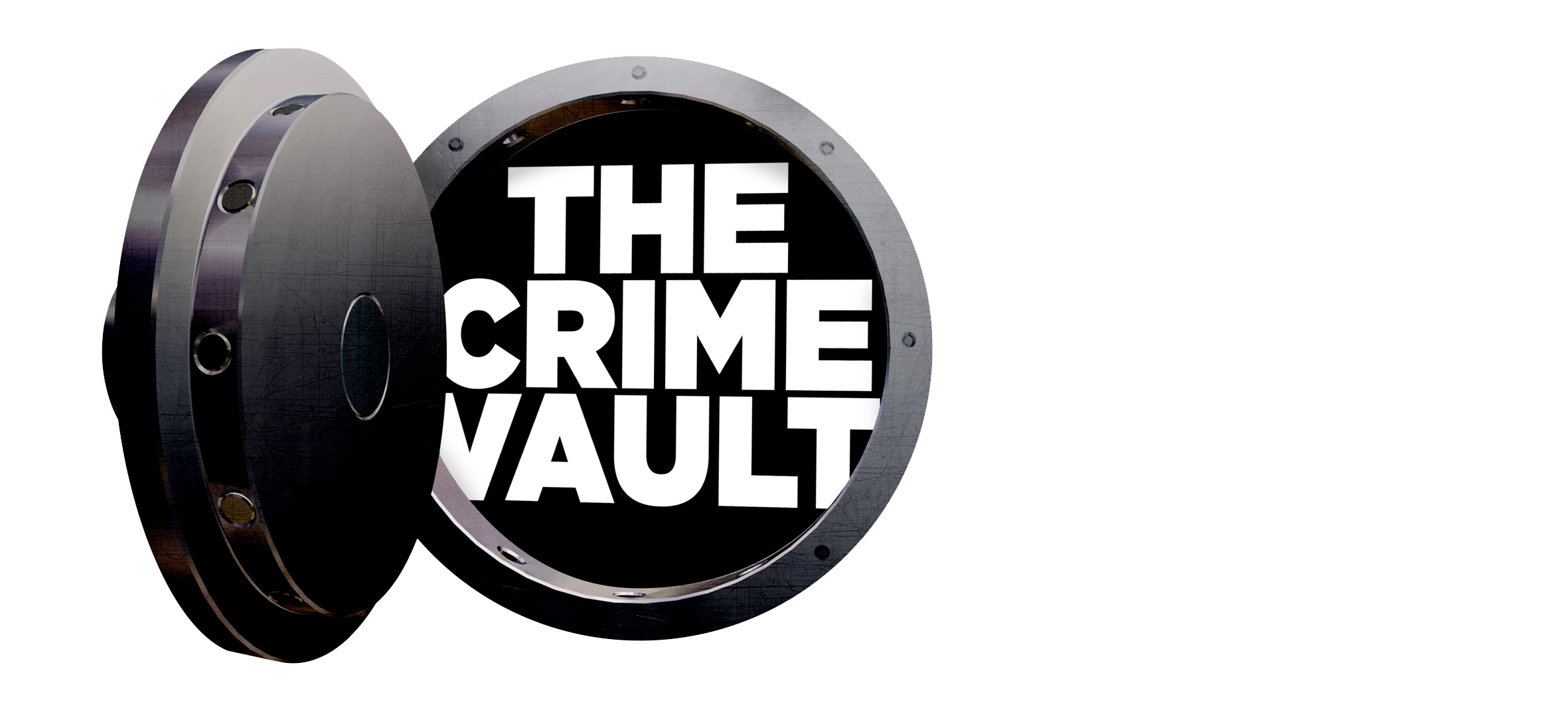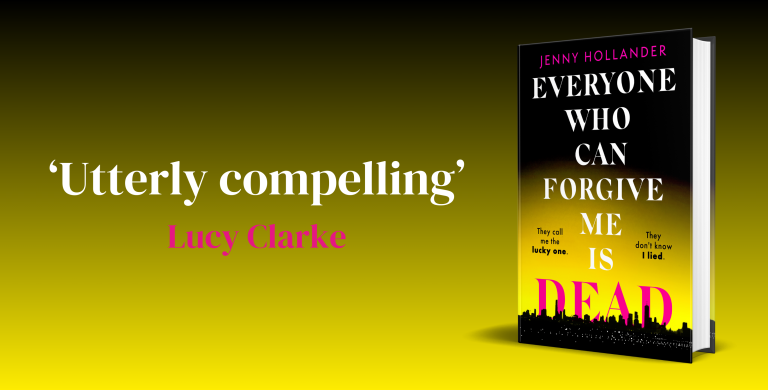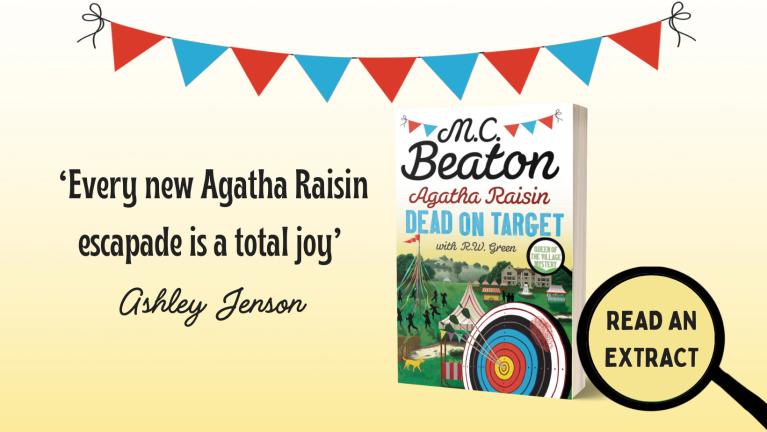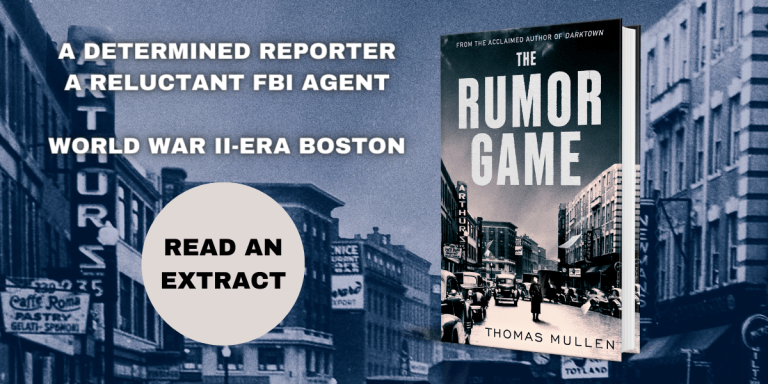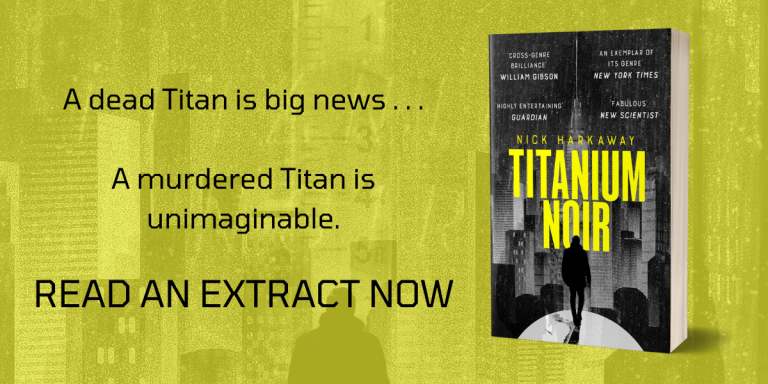Extract from In The Crypt With A Candlestick

Chapter 1
The Todes of Tode Hall
Lady Tode stood by the Great North Door of her important house, a vision of slimness and grief as she watched her husband take leave of the building for the last time. It was raining, as it always was, and Sir Ecgbert was dead. At the far end of the park, its huge, high dome obscured by mist, the Tode family mausoleum stood waiting, as it always had, to swallow his grim remains.
The mausoleum had been swallowing dead Sir Ecgberts for ten generations already, and had been waiting to swallow this one since the day of his birth ninety-three years ago. Which fact seemed, at his extended deathbed, to be a source of great comfort to him. Long after he could no longer recognise his wife or go to the lavatory unaided, he remained coherent and agitated about his final resting place. Was it ready for him? Had everyone understood which shelf he wanted? He didn’t want to be anywhere near his Uncle Gilbert (a homosexualist) nor – God forbid – anywhere near ‘the American’. Had they mowed the path across the park for the hearse? Would they remember to remove the cows from the field along the route? He didn’t want the hearse getting butted by the bullocks . . . Over and again, Lady Tode had to promise him that all was in order. Yes, my Eggie-Peg, she had to say. We know which shelf you want! Everything is ready! You mustn’t worry! But he could never hear it enough. It was as if the mausoleum’s mere presence, still standing where his ancestors had plopped it all those years ago, was proof that he had done his bit. The Tode mausoleum still belonged to the Todes. He could rest in peace.
It was in lousy shape, mind you. Non family members had to wear hard hats and sign waiver forms before they were allowed anywhere near it. There were cracks in the walls and missing tiles on the roof, and dry rot, and damp rot, and, in one of the four underground chambers (each with twenty or more shelves), a disgusting infestation of termites. There were stones that had come loose, and crypt fronts that had come off, and everywhere, signs warning tourists to Keep Out; not to mention the addition, in 1995, of a Missouri millionaire, ‘the American’, who’d paid the Tode Hall estate £35,000 for permission to rest his plebeian bones in an empty crypt beside Sir Ecgbert’s great, great, great, great grandfather.
But no matter what state it was in, or whose bones rested inside, there was no denying the Tode mausoleum was something to behold. It was vast. It was preposterous. A building of such staggering importance and beauty that students of architecture came to admire it from all around the world. The name Tode meant ‘death’ in German. (As the late Sir Ecgbert often liked to remind his guests: it was his single joke. ‘Welcome to Death Hall,’ he would say.) Perhaps this is why the Todes of Tode Hall invested so much in the family tomb. Maybe they’d always had an unhealthy preoccupation with the end.
In any case, Lady Tode could hardly bring herself to look at the wretched thing. She had hated it from the day she mistakenly became Sir Ecgbert’s bride, fifty-four years ago, when, stepping out of the private chapel from which Sir Ecgbert’s coffin was just now being removed, she had happened to glance at the mausoleum, its magnificent dome looming through the mist and the rain – and realised that, unless she did something radical and very brave, which was unlikely, the bloody thing would be looming at her until the day it was her turn to be slipped onto one of its shelves.
All things being equal, that wouldn’t be for a while yet. Emma Tode was twenty-one years younger than the husband she was burying today. Still fit and fragrant and very much alive, and after fifty-four years of dutiful wifedom, longing to hand responsibility for the estate to the next generation, and spend more time at her lovely villa in Capri.
There were only three clouds on the horizon: Nicola, Ecgbert and Esmé, none of whom was prepared for the duties that lay ahead. It was too bad, because somebody had to do it. Lady Tode had served her time. She had waited long enough.
There was going to be an almighty row after the wake.
Chapter 2
But first, the funeral.
Ecgbert and Emma Tode’s children, Nicola, Ecgbert and Esmé (fifty-three, fifty-one and forty-nine years, respectively), had not stayed together under the Tode Hall roof for many years, now. There were plenty of reasons for this. Nicola was a passionate socialist. She believed all property was theft and was bitterly ashamed of the house she grew up in, and consequently stayed away. Ecgbert – now Sir Ecgbert, of course: 12th Baronet – was a voluntary ‘guest’ in a nearby, privately owned luxury care home, from which he didn’t like to spend many nights away, and Esmé lived with wife and family in Australia. So there were geographical reasons. Mostly though, they didn’t see each other here, or under any other roof, because they didn’t like each other much.
They had a lot of arguing to catch up on. In the past week, as their father’s body lay in state in the chapel at the far end of the house, they had argued without pause: through every meal and all the boring bits in between. They argued about politics, religion, the name of Nicola’s second pony, what Mrs Carfizzi would be cooking them for dinner, and above all, over every minuscule detail of their father’s interment.
It turned out, despite Lady Tode’s deathbed assurances, that the new style of hearse wouldn’t be able to make it across the wet park without skidding, so the family eventually agreed they would load the coffin (eco-cardboard – over which, unimaginable squabbling) onto a trailer: and attach the trailer (still more squabbling) not onto Lady Tode’s perfectly functional and more appropriate black Range Rover, but onto the estate tractor, which was orange.
Orange tractor, dirty trailer and cardboard coffin would then lead a stately cortège the traditional quarter-mile route across the park, starting at the Great North Door where Lady Tode, family and guests now stood waiting, past the lake, up towards Africa Folly (a slight detour, and quite a climb, but grand and picturesque) and then on down through the field usually occupied by bullocks, to the gates of the mausoleum.
Lady Tode would walk immediately behind the trailer, accompanied by her children and followed by everyone else: well wishers, of which there were a few, estate workers, domestic staff and tenants, of which there were many, and grievers, of which there were none.
Given the length of the walk from Hall to mausoleum, and (it being early autumn in Yorkshire) the almost-guaranteed horrible weather, Lady Tode had thought it might be practical to suggest a less formal dress code. Her children, for once united, could not have disagreed with her more. They insisted on everyone dressing smartly because it was ‘what Father would have wanted’. Which was a bit rich.
This morning Lady Tode couldn’t help but notice that all three had chosen to ignore the dress code themselves, each one having pitched up in mud-spattered coats grabbed from the boot room at the last minute. Nicola was also wearing a Che Guevara-style red woollen beret, to reflect the importance to herself of her politics. Her oldest brother, affectionately known as ‘Mad Ecgbert’, was wearing a pair of boots that weren’t even a pair. And Esmé, who had small feet, was wearing a women’s pair also grabbed from the boot room at the last minute, which were bright pink.
In any case, here they were: Lady Tode and her difficult children, amid a crowd of two hundred and fifty or so respectfully dressed, bitterly cold funeral guests. The tractor was rumbling toward them, and behind it, the coffin, balanced on eight damp bales of hay and adorned with a single wreath of lilies. The message on the card, covered in plastic to stop the ink from smudging, read:
For Father
Jolly good luck!
From the family
Not very loving. But then, neither was Sir Ecgbert. You reap what you sow.
The tractor drew up. Driving it, as had been debated and agreed upon beforehand, was the estate’s handsome gamekeeper, Oliver Mellors. He looked magnificent.
However, when Mad Ecgbert saw Oliver Mellors at the tractor’s wheel he was disconcerted: it was different from the way he had imagined it, and somehow he didn’t like it. He stamped his foot. As the oldest son, not to mention heir to the ancient title, he should be the one doing the driving. It would be more appropriate – that’s what he said to his mother, in a loud voice. ‘Also,’ he added, ‘I know how to do it and it’s fun.’
Lady Tode had never been able to manage Ecgbert. Least of all, when he stamped his foot. She was a meticulously correct woman, and easily embarrassed, and the last thing she wanted right now was a scene. She glanced apologetically at Oliver Mellors, who at that point was thirty-four years old and had been working for the estate for seventeen years. Lady Tode had always had a soft spot for him. He put the gear in neutral and climbed down from the driving seat.
‘Thank you,’ Ecgbert said. It sounded faintly self righteous. Then he seemed to hear himself and smiled at Oliver apologetically. As if it were those two – Oliver and Ecgbert – against the world.
Oliver said, ‘You’ve driven it before, haven’t you? I mean – with the trailer on the back?’
‘Of course,’ said Ecgbert.
‘Just beware the back left wheel. When there’s not much of a load on, like now, it can feel like it’s going off on—’
‘I know, I know all that,’ interrupted Ecgbert. ‘Shall we push on? These poor people are standing in the rain, freezing to death. Let’s get the old man packed away!’
‘Right-oh,’ said Mellors.
‘Father’s been looking forward to this for ages, hasn’t he mother?’ Ecgbert yelled as he climbed into his seat. He sent everyone a warm, mad smile, and accelerated off, cackling, and deliberately steering for a puddle.
Esmé and Nicola shouted after him to slow down but he couldn’t hear; or he chose to ignore them. Off he drove, into the distance, and no one had much choice but to do their best to catch up. They walked as fast as they could, puffing and panting, while pretending nothing about the situation was amiss. And then, inevitably, disaster struck.
Half way across the park, near the top of the slope that crested somewhere by the Folly, so far away that the walkers could barely make out his figure, Mad Ecgbert’s tractor veered to one side. He cried out and the tractor juddered to a halt. An almighty revving of engine echoed through the park, followed by another, angrier shout – and then the trailer did what trailers do when driven erratically by excitable amateurs on a steep slope and without sufficient load to ground them. The left back wheel had hit against a rock, and now the entire trailer was tipping.
. . . One . . . two . . . three . . . The trailer recovered its balance too late to save its load. First the lilies fell, then the coffin, and then the hay bales. The coffin landed upside down and buckled under the weight of the bales as they landed on top.
Among the walkers, a horrified silence fell, and then Nicola started giggling. Esmé shot her a vicious look and broke into a run, his small, pink boots speeding to the disaster. No matter how mad or how irritating Esmé found his brother, Ecgbert was family, and he needed help.
By the time Esmé reached the tractor, Ecgbert had climbed down from the driving seat and was scrabbling among the wreckage, lifting hay bales off the coffin and dumping them onto the trailer as quickly as he could. He glanced across at Esmé, and then at the mourners, 150 or so yards away still, but coming closer every second.
‘Not to worry!’ he shouted. ‘All under control!’ He laughed, but Esmé could see that his brother was crying.
‘Idiot!’ Esmé said. Of all the things he’d called his brother in the past week, it was by far the mildest.
Ecgbert lifted another hay bale, ‘Oh Christ, is that his arm, Es? Is his arm sticking out? Es! It’s his skinny little arm – look! Disgusting . . . It’s Father’s arm.’
‘Get it back in,’ said Esmé.
‘It’s his arm, Es! It’s his fucking arm! I’m not touching—’
Esmé pushed his brother aside, grabbed the arm (stiff as board, light as feather), shoved it back into the coffin, and slammed the box shut. ‘Coffin’s upside down,’ he said. ‘Help me turn it over. Quick. We can get it back up before they come. Forget the bales, Ecgbert. Hurry!’
Ecgbert did as he was told, tears streaming down his face. ‘We should never have got this ridiculous coffin!’ he panted.
‘Hurry!’
‘If we’d got a decent coffin . . .’
They plonked it back onto the trailer. Esmé picked up the wreath, still in pretty good shape all things considered, dusted it down and arranged it on top of the damaged coffin. By the time the guests had arrived, everything was more or less back in place. Ecgbert and Esmé had arranged the last two bales into an ad hoc seating area, and were perched one on each, chatting as if nothing were amiss. Except Ecgbert was shaking.
‘Goodness, this rain!’ said Lady Tode as she drew up before them. ‘It really is sheeting down!’
‘Oh, Emma, isn’t it just!’ said her friend, Veronica Snell of Snell Manor. ‘Wretched weather!’
Nicola arrived, personality-defining hat bobbing as she jogged along.
‘Your stupid coffin broke,’ Ecgbert snarled, before she had time to gloat. ‘I told you it wouldn’t work. Father’s arm fell out. Es had to stuff it back in.’
‘Goodness,’ exclaimed Lady Tode. ‘That’s a rather nice “seating area” you’ve got arranged there, Ecgbie! What an absolutely brilliant idea! I should think some of us would be grateful for a sit down, after that climb. Oof! Or shall we keep going?’
It was decided they should keep going.
Ecgbert looked at Oliver Mellors, who smiled back at him in a gentle, sympathetic, sexy, handsome, understanding, reassuring, confident manner. Nicola didn’t go for cis men, so she wouldn’t have noticed. Everyone else was still trying to catch their breath. Ecgbert returned the smile, a little ruefully. ‘On second thoughts,’ he said, ‘you should probably take it from here, Oliver. If you don’t mind.’
Order now restored, Sir Ecgbert’s cortège continued on its solemn path.
